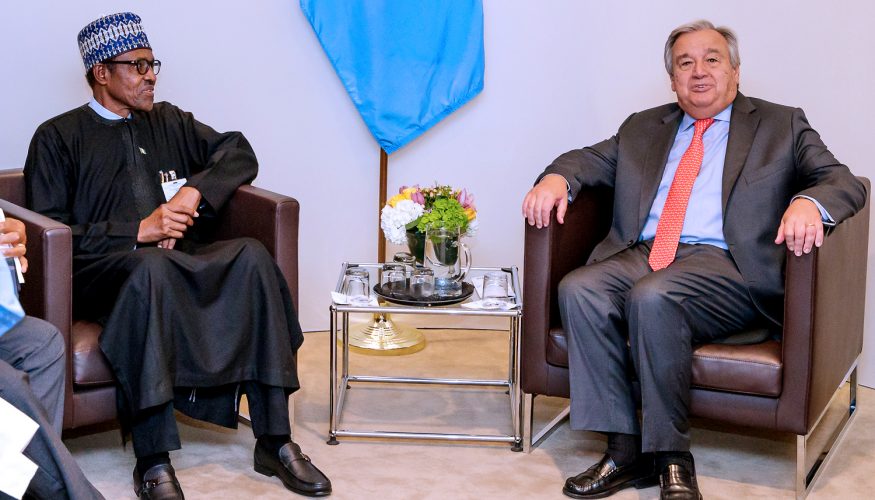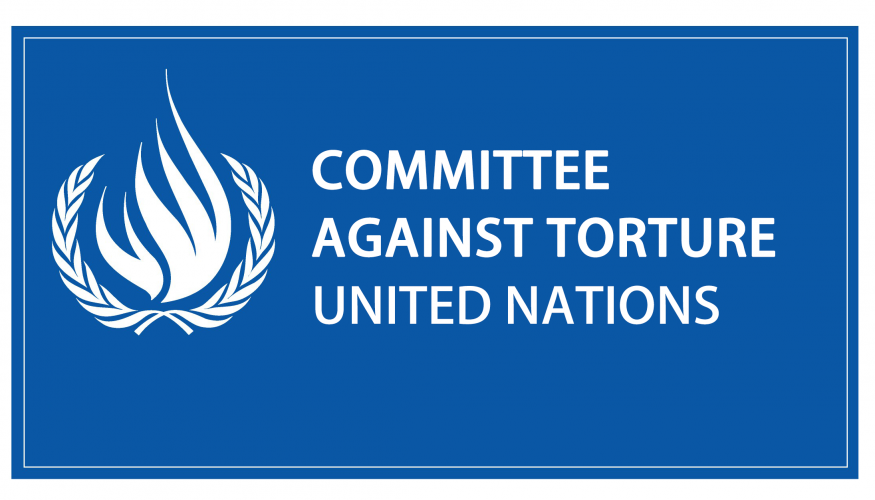‘NIGERIA HAS TAKEN STEPS TO ENFORCE TORTURE CONVENTION,’ SAYS UN-CAT
The Committee against Torture, a United Nations entity, has commended Nigeria for its “accession to or ratification of” some international instruments since Nigeria’s accession to the Convention against Torture and Other Cruel, Inhuman or Degrading Treatment or Punishment.
In its latest report on torture, the Committee enumerated some “positive aspects” relating to Nigeria, noting that it “welcomes the accession to or ratification of the following international instruments by the State party.”
The Committee also commended some “legislative and institutional measures” taken by Nigeria to give effect to the Convention.
The international instruments include:
(a) The United Nations Convention against Transnational Organized Crime, on 28 June 2001;
(b) The Protocol to Prevent, Suppress and Punish Trafficking in Persons, Especially Women and Children, supplementing the United Nations Convention against Transnational Organized Crime, on 28 June 2001;
(c) The Protocol against the Smuggling of Migrants by Land, Sea and Air, supplementing the United Nations Convention against Transnational Organized Crime on 27 September 2001;
(d) International Convention for the Suppression of the Financing of Terrorism, on 16 June 2003;
(e) The Optional Protocol to the Convention on the Elimination of All Forms of Discrimination against Women, on 22 November 2004;
(f) The Optional Protocol to the Convention against Torture and other Cruel, Inhuman or Degrading Treatment or Punishment, on 27 July 2009;
(g) The International Convention for the Protection of All Persons from Enforced Disappearance, on 27 July 2009;
(h) The International Convention on the Protection of the Rights of All Migrant Workers and Members of Their Families, on 27 July 2009;
(i) The Optional Protocols to the Convention on the Rights of the Child on the sale of children, child prostitution and child pornography and on the involvement of children in armed conflict, on 25 September 2010 and 27 September 2012 respectively;
(j) The Convention on the Rights of Persons with Disabilities and its Optional protocol, on 24 September 2010;
(k) The 1954 Convention relating to the Status of Stateless Persons and the 1961 Convention on the Reduction of Statelessness, in 2011;
(l) The African Union Convention for the Protection and Assistance of Internally Displaced Persons in Africa (Kampala Convention), in 2012.
Among the “legislative and institutional measures” taken by Nigeria to give effect to the Convention are:
(a) The Child Rights Act, in 2003;
(b) The African Charter on Human and Peoples Rights (Ratification and Enforcement) Act, in 2004;
(c) The Evidence Act, in 2011;
(d) The National Human Rights Commission Act, in 2010;
(e) The Terrorism (Prevention) Act, in 2011;
(f) The Legal Aid Council of Nigeria Act, in 2012;
(g) The Administration of Criminal Justice Act, in 2015;
(h) The Violence against Persons (Prohibition) Act, in 2015;
(i) The Anti-Torture Act, in 2017;
(j) The Nigerian Correctional Service Act, in 2019;
(k) The Nigerian Police (Establishment) Act, in 2020;
(l) The Judicial (Financial Autonomy) Act, in 2020;
(m) Fundamental Human Rights Enforcement Procedure Rules, in 2009;
(n) The action plan to end and prevent the recruitment and use of children, in 2017
(o) The national action plan for the promotion and protection of human rights and strategic work plan 2019-2022;
(p) The establishment of the Administration of Criminal Justice and Reforms Department.
The Committee against Torture is a United Nations body of independent experts that monitors implementation of the Convention against Torture and Other Cruel, Inhuman or Degrading Treatment or Punishment by its State parties. The Committee against Torture is composed of 10 independent experts who are persons of high moral character and recognized competence in the field of human rights. The Committee is currently chaired by Mr. Claude Heller.
Copyright 2022 CITY LAWYER. Please send emails to citylawyermag@gmail.com. Join us on Facebook at https://web.facebook.com/City-Lawyer-Magazine-434937936684320 and on TWITTER at https://twitter.com/CityLawyerMag. To ADVERTISE in CITY LAWYER, please email citylawyermag@gmail.com or call 08138380083. All materials available on this Website are protected by copyright, trade mark and other proprietary and intellectual property laws. You may not use any of our intellectual property rights without our express written consent or attribution to www.citylawyermag.com. However, you are permitted to print or save to your individual PC, tablet or storage extracts from this Website for your own personal non-commercial use.

